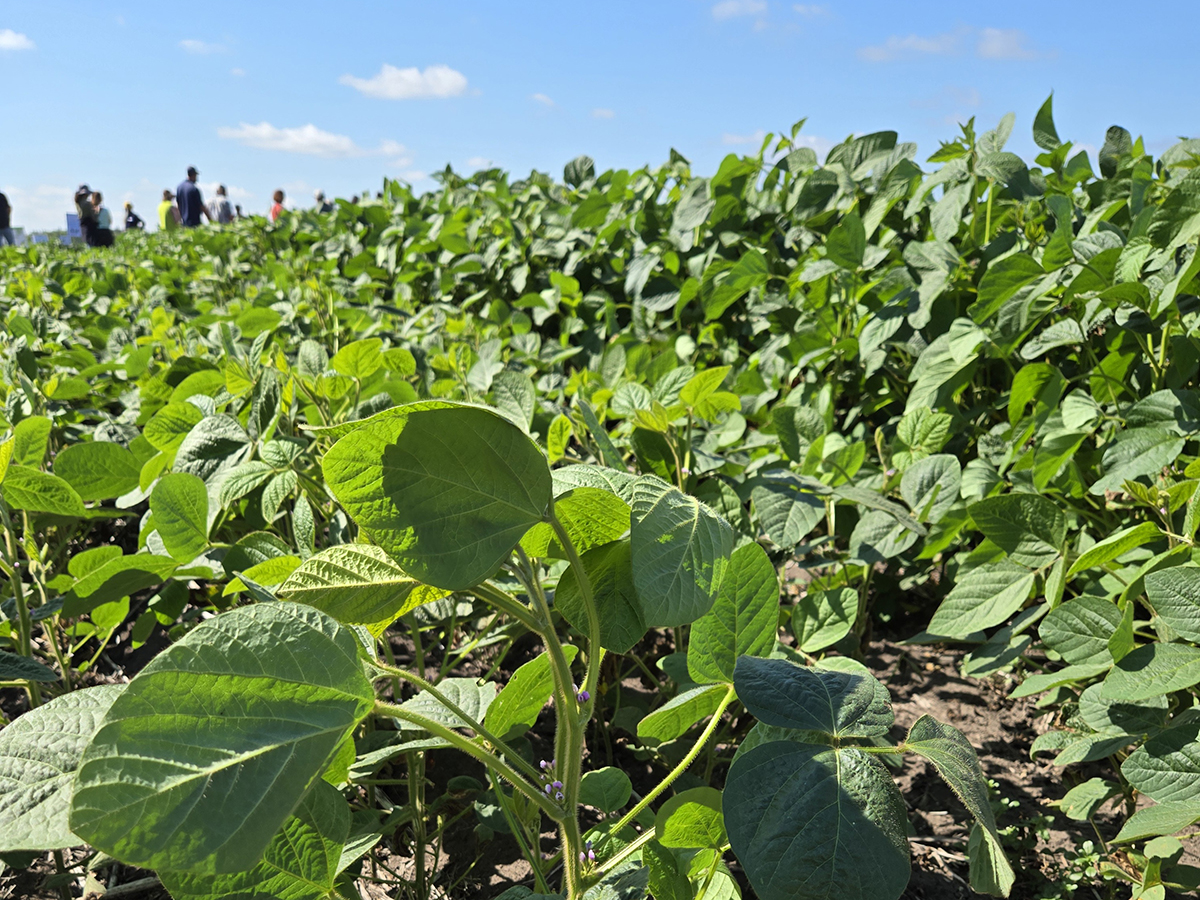Saskatchewan agriculture minister Clay Serby could scarcely contain his
incredulity.
About 1,800 rural councilors and administrators, many of them farmers,
were in the room when federal finance minister Paul Martin spoke in
Regina last week.
They are part of a group that has called for $1 billion in emergency
aid for farmers, and has supported Serby’s efforts in Ottawa on their
behalf.
Yet when they had their chance at the microphones, only one
specifically requested help from Ottawa.
Read Also

Spider mites big soybean problem this season
Spider mite issues have been geographically limited but significant where they occur, said John Gavloski, an entomologist with Manitoba Agriculture.
When Martin was confronted face to face with an angry farmer, it was
only afterwards, out in a hallway.
“I was shocked. I was absolutely amazed,” said Serby, the Saskatchewan
agriculture minister, who also attended the speech. “There was more
concern about an individual, the future of the president of SARM, than
the future of Saskatchewan agriculture.”
Serby was referring to the fact that three of seven questions directed
to Martin by Saskatchewan Association of Rural Municipalities delegates
dealt with the appointment of the head of the Canadian Grain Commission.
SARM past president Sinclair Harrison has said he wants the job.
Only one delegate, Ken Waldherr from the RM of Churchbridge, questioned
Ottawa’s commitment to help farmers after last year’s drought.
“You have money for species at risk. You have money to bail out
airlines. You have hundreds of millions of dollars for gun control,”
Waldherr said. “You have money to plunk the department of oceans and
fisheries in the middle of the bald prairie – imagine that – and yet
after the driest year on record in Saskatchewan you have no money for
emergency aid for agriculture. Can you please explain to me why this is
so?”
Martin did not answer the question, other than to say Ottawa did not
bail out airlines.
But he later told reporters he would not speculate on whether emergency
aid would be necessary, even though the forecast is for continuing dry
weather.
“We’ve demonstrated in the past that we’ve stood behind agriculture and
we’re prepared to come in, but I don’t want to get into a
hypothetical,” he said.
Martin said the sooner the federal and provincial agriculture ministers
sign a new agreement on the farm policy, the better off farmers will be.
And he said that agreement would help farmers like Arnie Brickner, who
stopped Martin in the hallway after his speech.
Brickner, a 47-year-old farmer from Colonsay, Sask., told Martin that
he diversified into bison but the animals are not making any money and
he can’t make loan payments.
He spent $700 to have his accountant prepare an application to the
Canadian Farm Income Program, but did not qualify.
“Here’s (federal agriculture minister) Mr. Vanclief saying we put
billions of dollars into agriculture,” an emotional Brickner told
Martin. “I see none. Where’s the money? We’re going broke.”
Martin said he was touched by Brickner’s situation.
“That’s why I really hope this agreement between the feds and the
provinces will be signed as quickly as possible,” he told reporters.















